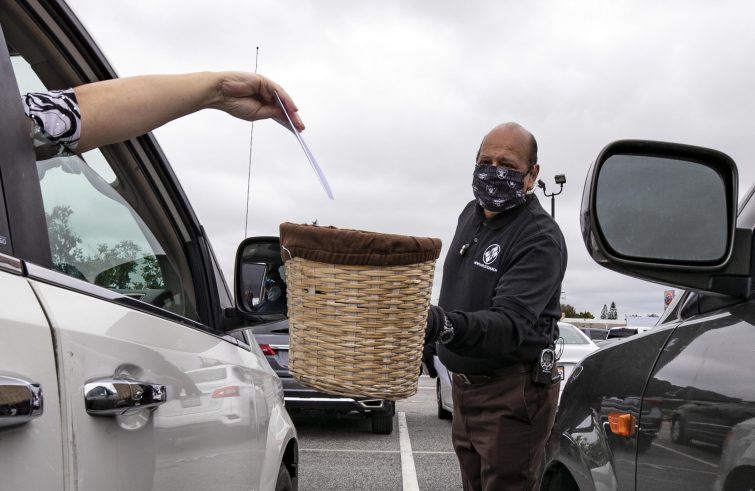
(New York) – It’s 7 pm. Here we are, standing by the windows and doors of our homes clapping and shouting: “Thank You!” Unanimous collective gratitude is expressed every evening by New York City to its doctors, nurses, policemen, drivers and all those workers who risk their lives every day to save those of others. A tragic death toll was reported again today: 15,740 deaths in New York, over 50,000 in the United States and almost 890,000 infected.
And yet despite tragic figures, there are pressing requests to reopen the Country and go back to work. Thousands of jobs have been lost in the past 33 days of quarantine, exposing a fragile welfare system and exacerbating the deep-rooted poverty obscured by the lights of consumerism. President Trump summoned religious leaders to the White House to explore the possibility of reopening churches, temples and synagogues, in line with safety precautions.
Many faith leaders clearly said that they “want to be a blessing and not a burden” for the country and will evaluate whether resuming liturgical services could “cause more harm than good.” Some encourage outdoor religious services with people in their cars in order to ensure a smooth transition to normal life. Meanwhile, the websites ReopeningChurch.com and ReopeningSchool.com are exploring ways to re-open, shared with the faithful.
Caution is a must, although protests over the closure of churches took place in some States, and petitions have been filed in Florida, Mississippi, Kentucky, Virginia, California and Texas testifying to the tension involving religious freedom and the protection of public health.
The Archbishop of Baltimore William Lori, known for his battles on freedom of worship, reminded the small groups of Catholic protesters that “heeding the government’s orders to suspend religious services is eminently reasonable and it does not in any way attack or undermine our faith.” “While organizing marches – both ecclesial and civil – in defiance of legitimate authority, is a mistake that puts people’s lives at risk and challenges our best judgment.”
On Easter Eve, however, no one was protesting outside St. Clare’s, the oldest Catholic church on Staten Island, facing Manhattan. Monsignor Richard Guastella died from the Covid-19. His parishioners kept his memory alive as they wallpapered the front door with photos, hearts, flowers and messages. This multitude of remembrances is the only one allowed as the other parish priest also fell ill but managed to resist the disease. There are no official numbers on the deaths of pastors and priests, but the Church of God in Christ, the largest Afro-American Pentecostal denomination in the country, has lost 30 of its bishops, confirming the tragic trend affecting the Afro-American community in a particularly serious way. The faithful had been reluctant to comply with the restrictions imposed at Federal level and continued attending funerals and a number of scheduled meetings, thus further spreading the epidemic.
Although Texas has excluded places of worship from the lockdown, Father Clint from Texas City decided not to endanger the lives of the faithful and closed the church. However, he found an original way to visit them: by bicycle. Every day, the priest cycles long distances, rings doorbells, takes a few steps away and imparts blessings and prayers from a distance. Several priests from Austin, also in Texas, invited the parishioners to attend a penitential celebration by car in the parking lot of the parish. Each person, closed in their car and at a safe distance, had the opportunity to receive absolution.
No shortage of creativity.
The Caritas Centre in Owensboro, Kentucky, is hosting homeless people in two city hotels to prevent the spread of the virus, and many people have chosen to donate $300 of the benefit cheque received from the government to support charitable projects.
The Diocese of Buffalo has launched a Covid-19 emergency helpline providing medical advice as well on drug abuse and practical support of food and shelter.
In the last five weeks, local Catholic Charities catered to the needs of more than 20,400 people, an 18% increase compared to last year, while requests for food have doubled in the diocese of Venice, Florida alone. However, nobody is being spared by anxiety about the future. The Archdiocese of New York reported a 50% drop in cash donations and has already announced that some parishes might face difficulties in remaining open. Caritas has also had to lay off a number of workers due to decreased or closed child care programs. Pope Francis’ task force will perhaps provide some guidance also here.












